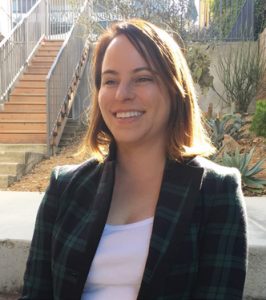 DEGREE: B.A. in American studies and film studies
DEGREE: B.A. in American studies and film studies
JOB TITLE: CEO and founder, Tradecraft
FAVORITE TRINITY MEMORY: When Parliament played on the Main Quad lawn … it was pouring rain, and as soon as they started playing, the sun came out!
What is Tradecraft?
Tradecraft is a real estate renovation and investment company based in Los Angeles with arms in San Francisco and New York.
How did you get started in your field?
Like many kids at liberal arts colleges, I wasn’t sure what my ultimate career goals were when I started school. I always had been interested in art and design and had come from a family of aesthetes, so I knew it might be something in that realm. After a number of years working in music and event marketing, I decided to realize my original passions more clearly. A friend in Los Angeles had been buying distressed properties for resale, and I immediately knew this was something in which I’d excel. Over the course of about 1½ years, I segued out of entertainment and focused on real estate and design full time.
Why did you found Tradecraft?
The world of renovating real estate is often done in a freelance capacity because there are so many methods of going about it. I knew almost off the bat that I needed control of the overall look and feel of my projects, so being my own boss was a no-brainer. Tradecraft reflects my independent and creative spirit.
What do you enjoy most about your work?
I get to decide with whom I work without having to deal with the bureaucracy of hierarchy and corporate ladders. I also love the blend of business strategy and creativity.
What are the biggest challenges you face?
Managing cash flow and buying properties at the right price knowing the cost that I’ll need to purchase and renovate them. Also, underestimating the funds that I’ll have to put into fixing a home.
What advice would you give today’s students who might be interested in a future in your field?
I would advise students to talk to as many experienced people as possible from disciplines related to building, architecture, design, and real estate. It’s a big field with many paths, and hearing firsthand is always best. It’s also an industry that doesn’t have a straightforward education trajectory, so I think if you have the ability to do an internship or paid job in one of these areas, it’s a great way to see into the biz.
Was there a professor who was particularly influential?
Definitely Cheryl Greenberg [now Paul E. Raether Distinguished Professor of History]. She helped guide me while at Trinity and beyond. We’ve kept in touch all of these years. She was a big influence on me because she helped me discover that I could do anything regardless of what I was studying in school. She encouraged me to explore the world.
What was the most memorable course you took at Trinity? Why?
It’s a tough choice, but “Italian Cinema” and my art classes come to mind. They enabled me to analyze my visual surroundings in a deeper way and become more intuitive. I think they also made me a more culturally aware person, which is helpful in any business where you interact with a wide array of people from different backgrounds.